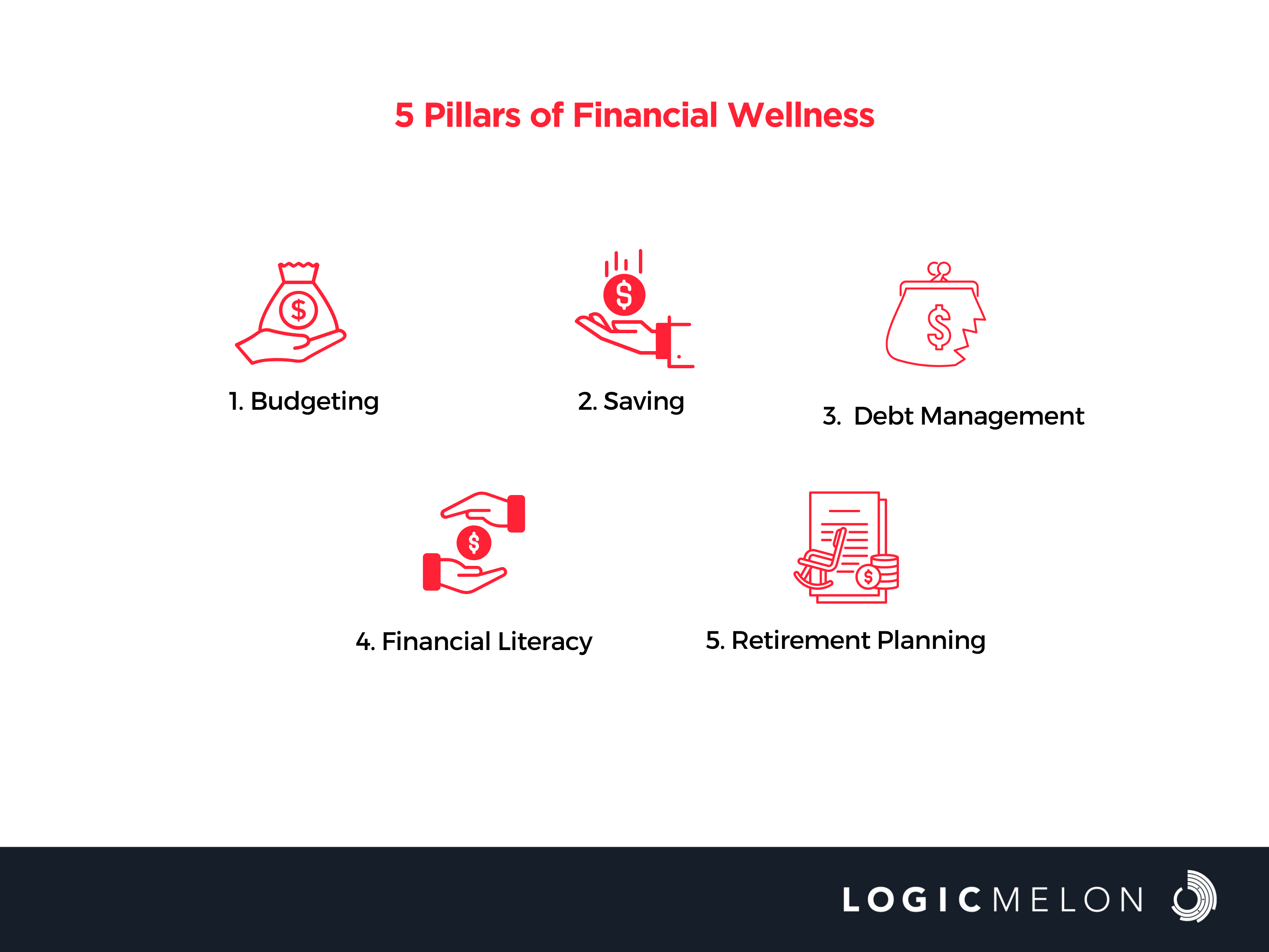Financial Wellness: Everything You Need to Know
Money is like the fuel that drives our daily lives. Just as a car needs petrol to keep moving, we need money to buy the things we need and want. But, just as a car cannot function without proper maintenance and care, our financial health requires attention and effort to function properly. Achieving financial wellness is akin to being the mechanic of our own financial lives, ensuring that everything is in working order and ready to take us where we want to go.
You know what the stats say: in the past two years, 37% of respondents said their financial wellness has increased, 42% said it has stayed the same, and 21% said it has decreased.
What is Financial Wellness?
The state of being financially healthy, stable, and secure is referred to as financial wellness. It entails being able to properly manage one’s financial resources, which includes controlling debt, saving for the future, and making sound financial decisions. Financial well-being is a crucial component of overall well-being and can have a significant impact on physical and mental health.
From a recruiter’s perspective, financial wellness is an essential consideration for potential employees. Companies that prioritise financial wellness for their employees may see benefits such as increased productivity, reduced stress, and improved job satisfaction.
5 Pillars of Financial Wellness:
The pillars of financial wellness are a set of fundamental areas on which an individual must focus in order to achieve financial stability and security. From the perspective of a recruiter, these pillars can provide a useful framework for assessing a candidate’s financial fitness and potential.
Here are the four pillars of financial wellness:

1. Budgeting:
The ability to design and stick to a budget is crucial for financial well-being. Understanding your income and expenses, identifying areas where you can cut back on spending, and setting financial goals are all part of it. A recruiter might look for candidates who have good spending habits and are willing to prioritize financial planning.
2. Saving:
Saving money is an important part of financial well-being. Saving for emergencies, retirement, and other long-term goals requires discipline and a solid understanding of financial principles such as interest rates, investment methods, and risk management. A recruiter may seek applicants who have a track record of prudent saving and investment.
3. Debt management:
Debt management is a vital component of financial wellness. From credit card debt to student loans, managing debt responsibly requires discipline and a thorough understanding of financial principles such as interest rates, repayment terms, and credit scores. A recruiter may look for applicants who can manage debt responsibly and make sound financial decisions.
4. Financial literacy:
The understanding of financial principles such as budgeting, saving, investing, and debt management is known as financial literacy. A recruiter may search for applicants who have a basic understanding of finance and a desire to learn and improve in this area.
5. Retirement planning:
Setting goals, estimating expenses, and building a savings plan that takes into account factors such as inflation, Social Security payments, and potential investment returns are all part of retirement planning.
A candidate who demonstrates a commitment to financial wellness, strong financial management skills, and a willingness to learn and grow in this area can be an asset to any organisation.
Frequently Asked Questions
1. Why is financial wellness important for employees?
An employee’s overall well-being and quality of life are directly affected by financial wellness. Financial stress can result in lower productivity, higher absenteeism, and higher healthcare costs. Employee happiness, loyalty, and retention can be increased when employers prioritise financial wellness programs. Employees who are financially healthy are better able to achieve their financial goals and contribute to the economy.
2. Why is financial wellness important for employees?
The well-being and quality of life of employees are directly impacted by financial wellness. The burden of financial stress can lead to reduced productivity, increased absenteeism, and higher healthcare costs. By prioritising financial wellness programs, employers can enhance employee happiness, loyalty, and retention. Moreover, financially healthy employees are better equipped to achieve their financial goals and make meaningful contributions to the economy.
3. How can an employer promote Financial Wellness among employees?
Employers can foster financial wellness among their employees through various initiatives and provisions:
- Financial Education Programmes: Offer engaging financial education programmes that equip employees with valuable knowledge and skills to navigate their financial journeys effectively.
- Access to Financial Advisors or Planners: Provide employees with access to financial advisors or planners who can offer personalised guidance and help them develop sound financial strategies.
- Retirement Plans: Establish retirement plans, enabling employees to save for their future and enjoy financial security in their golden years.
- Policies for Healthy Financial Habits: Implement policies that encourage healthy financial habits, such as automatic savings schemes. Consider flexible compensation packages that encompass benefits like health savings accounts, tuition reimbursement, and retirement savings matching.
- Setting Financial Objectives: Encourage employees to set financial objectives and provide resources to support them in achieving those goals. Empower them with tools for debt management, financial planning, and access to employee support programmes that include financial counselling.
By promoting financial wellness, employers can enhance employee productivity, reduce absenteeism, and elevate overall job satisfaction.
4. What are some common financial challenges faced by employees, and how can they be addressed?
Employees often encounter common financial challenges, including living paycheck to paycheck, limited retirement savings, excessive debt levels, and unexpected bills. To address these challenges:
- Budgeting and Expense Tracking: Encourage employees to develop budgets and track their expenses meticulously. This practice helps them gain a clear understanding of their spending patterns and identify areas where they can make adjustments.
- Financial Education and Counselling: Facilitate access to financial education or counselling services, empowering employees with the knowledge and skills necessary to make informed financial decisions. This can include negotiating with creditors to lower interest rates or payment amounts.
- Employer-sponsored Benefits: Highlight the advantages of employer-sponsored benefits like retirement plans or flexible spending accounts. Educate employees on how these benefits can assist in managing debt and achieving financial stability.
- Exploring Additional Income Sources: Encourage employees to explore alternative sources of income, such as part-time work or freelance opportunities, to supplement their primary income and alleviate financial strain.
Wrapping Up:
In the realm of job seeking, recruiters play a role akin to that of financial advisors. Just as financial advisors assist clients in achieving financial health through guidance and support, recruiters help job seekers attain career wellness. They do this by matching them with suitable employment opportunities and equipping them with the necessary resources and skills for success. Like financial advisors, recruiters must stay up to date with recruiting trends and job market demands to provide the best advice and support to their clients. Ultimately, both financial advisors and recruiters strive to create an environment where their clients feel comfortable, stable, and successful.
LogicMelon
Award-winning recruitment software that will find, attract, hire and analyse the way you want to work. At LogicMelon, we have experienced software recruitment marketing specialists to help you build effective recruitment solutions supported by the best customer service you’ll find anywhere!
Email: sales@logicmelon.com or call LogicMelon (UK) +44 (0) 203 553 3667 (USA) +1 860 269 3089
Cloud Talent Assessment: Finding the Right Fit for Your Cloud Team
Cloud talent assessments are organised to evaluate the cloud computing skills, knowledge, and capabilities of individuals or teams.
Job Market Analysis for Successful Hiring
Recruiters can attract the best candidates by conducting a comprehensive job market analysis to ensure competitiveness.
10 Candidate Assessment Methods
The objective of candidate assessment is to make an informed decision about whether the candidate is the right fit for the particular role.


